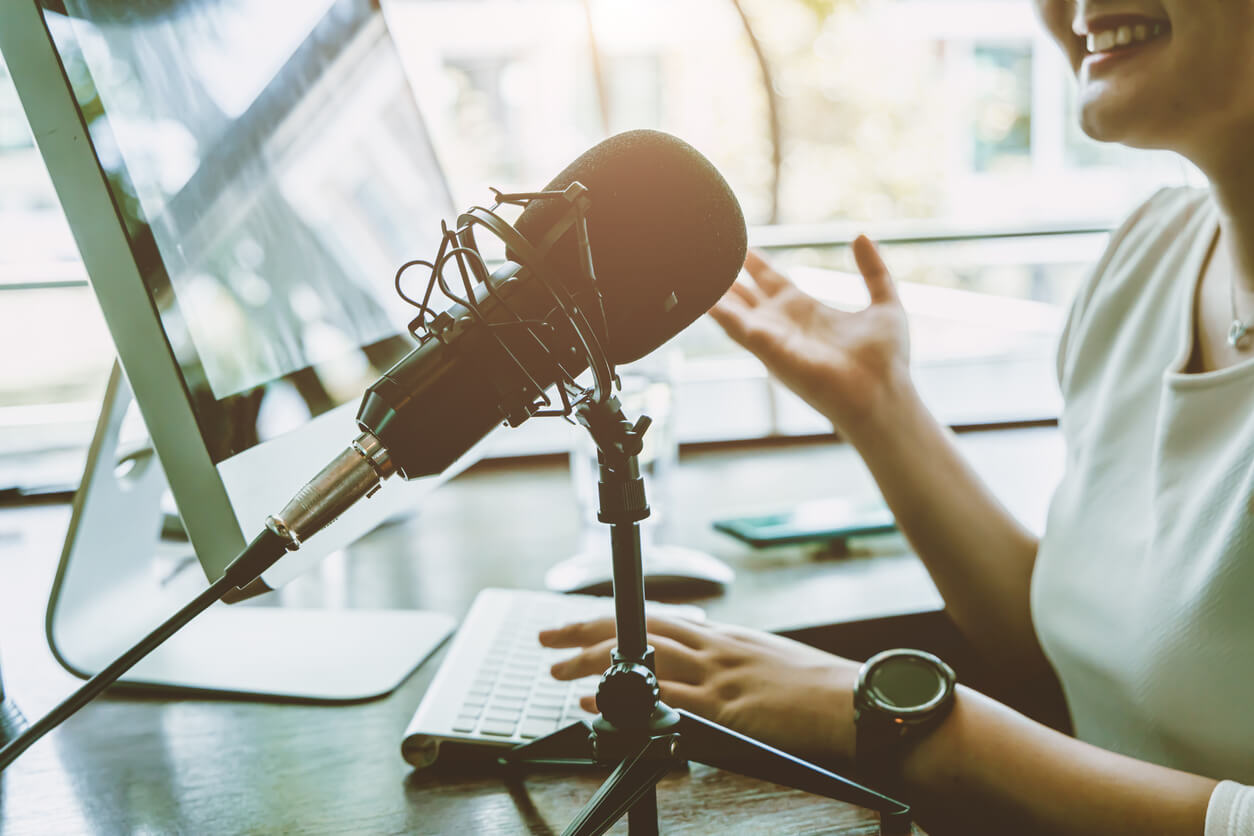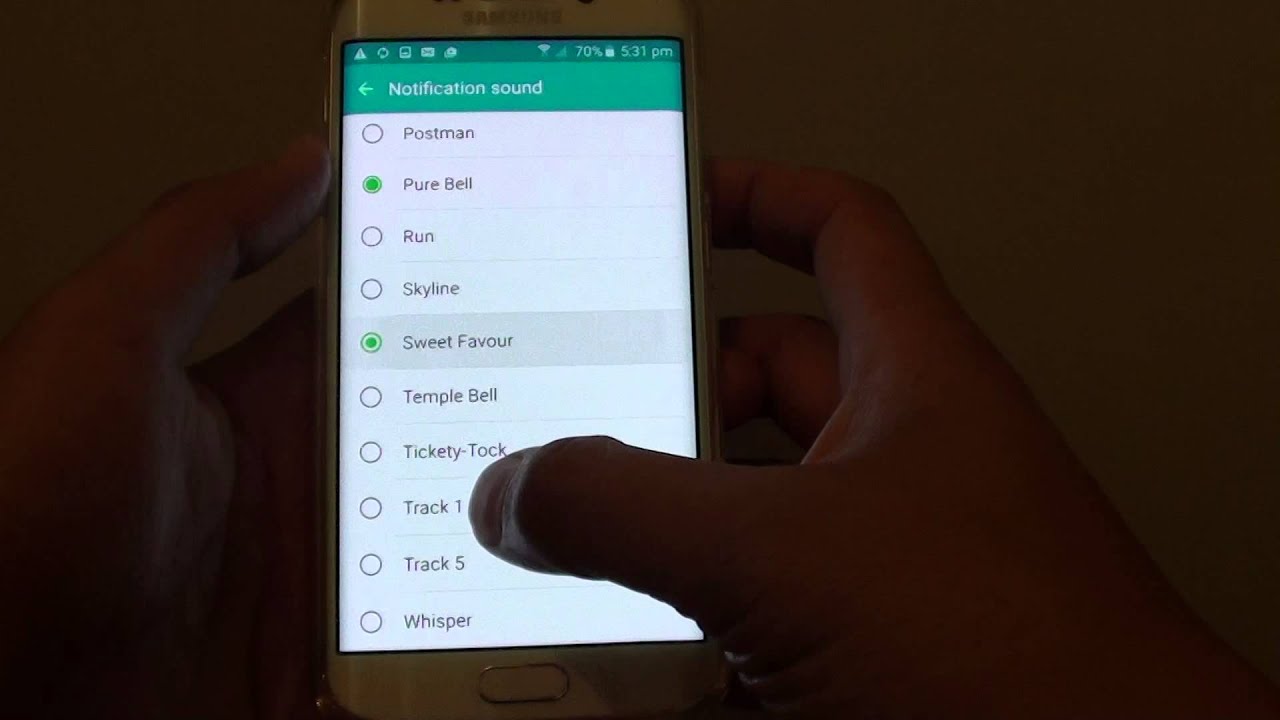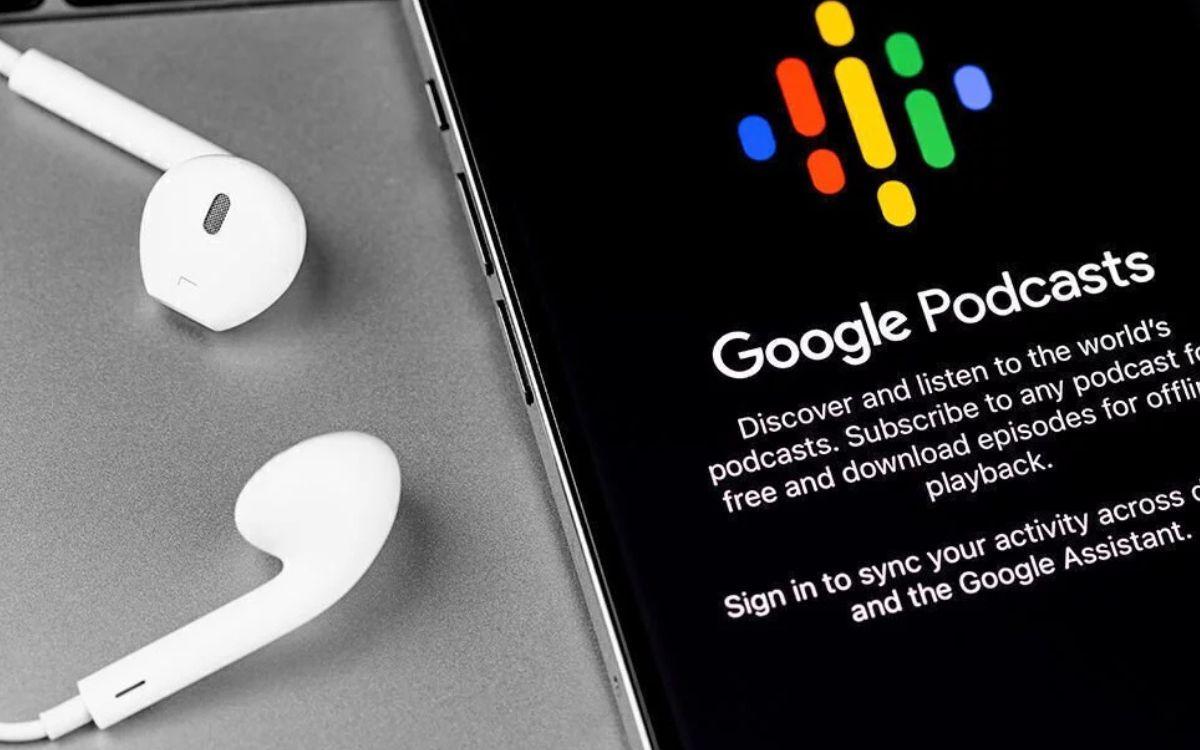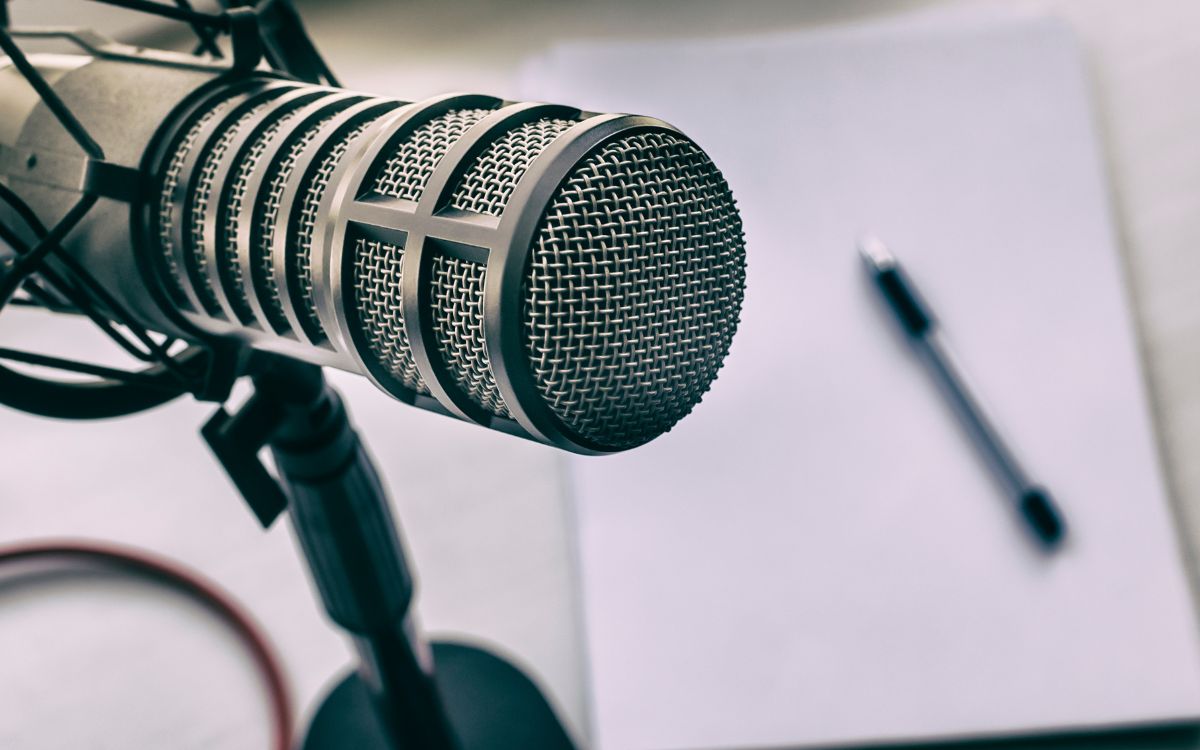Home>Events & Info>Podcast>How To Cite Podcast In Text


Podcast
How To Cite Podcast In Text
Published: December 12, 2023
Learn how to properly cite a podcast in your text with our comprehensive guide. Understand the correct format and citation style to include when referencing a podcast.
(Many of the links in this article redirect to a specific reviewed product. Your purchase of these products through affiliate links helps to generate commission for AudioLover.com, at no extra cost. Learn more)
Table of Contents
Introduction
Citing sources is a crucial aspect of academic and professional writing. It not only gives credit to the original creators but also allows readers to verify the information and delve deeper into the topic. When it comes to citing sources, most people are familiar with citing books, articles, and websites. However, with the rise in popularity of podcasts as a medium for sharing information and entertainment, it becomes essential to also know how to cite podcasts in text.
In recent years, podcasts have gained immense popularity, covering a wide range of topics and offering a convenient way to access audio content. Whether you are a student writing a research paper, a journalist writing an article, or an enthusiast referencing a podcast episode, providing proper citation adds credibility to your work.
While citing a podcast in a bibliography or reference list is well-documented, the question arises on how to cite podcasts within the body of the text. This is important when you want to mention a specific idea, quote, or piece of information from a podcast episode, as it allows the reader to locate and verify the source directly.
In this article, we will explore why it is important to cite podcasts in text, the format for citing podcasts, and provide examples to illustrate how to cite podcasts effectively.
Why is it important to cite podcasts in text?
Citing podcasts in text is important for several reasons:
- Credibility and Accuracy: By citing podcasts, you demonstrate that your work is based on reliable sources. It adds credibility to your claims and indicates that you have done thorough research.
- Verification: Podcasts often include valuable information or unique insights. By citing them in text, you allow readers to easily find and verify the information you are referencing. It also enables them to listen to the podcast episode for more context.
- Respecting Intellectual Property: Just like any other form of media, podcasts are protected by copyright. Citing the podcast demonstrates respect for the intellectual property rights of the creators and avoids plagiarism.
- Academic and Professional Standards: Many academic and professional institutions require proper citation of sources. By citing podcasts, you adhere to the standards of your field and avoid potential consequences, such as accusations of misconduct or invalidation of your work.
- Ethical Considerations: Citing podcasts not only fulfills your academic or professional obligations but also reflects ethical behavior. It acknowledges the efforts of the podcast creators and promotes transparency and integrity in your writing.
Furthermore, citing podcasts in text adds depth and richness to your writing. It allows you to incorporate diverse sources and present a well-rounded perspective to your readers.
It is worth mentioning that the specific guidelines for citing podcasts in text may vary depending on the citation style you are using, such as APA, MLA, or Chicago. It is essential to consult the official guidelines of the respective style and adapt the format accordingly.
Format for citing podcasts in text
When citing podcasts in text, it is important to include the relevant information that allows readers to locate the episode you are referencing. The basic format typically includes the podcast host(s), the episode title, and the episode number or date.
Here is a general format for citing podcasts in text:
- Host(s): Start by mentioning the name(s) of the podcast host(s) or the person(s) responsible for the episode. If there are multiple hosts, you can list their names separated by commas.
- Episode Title: Include the specific title of the episode in quotation marks. You can usually find the episode title in the podcast’s episode description or title.
- Episode Number or Date: Depending on the podcast, you can include the episode number (if available) or the date of the episode. This helps to provide a more accurate and specific reference.
It is important to note that the specific format may vary depending on the citation style you are using. Here are a few examples in different styles:
APA Style:
Smith, J., & Johnson, A. (Hosts). (2022, January 15). “The Future of AI” [Audio podcast episode]. In The Tech Talk Podcast. Retrieved from URL
MLA Style:
Smith, John, and Amy Johnson, hosts. “The Future of AI.” The Tech Talk Podcast, 15 Jan. 2022. Podcast episode.
Chicago Style:
Smith, John, and Amy Johnson. “The Future of AI.” The Tech Talk Podcast, January 15, 2022. Podcast.
Remember to adapt the format according to the specific guidelines of the citation style you are using.
Additionally, if you are directly quoting or paraphrasing specific content from the podcast, it is recommended to include a timestamp or time range indicating when the information was discussed. This further assists readers in locating the exact portion of the episode you are referencing.
Overall, by following the appropriate format for citing podcasts in text, you ensure that your references are accurate and allow readers to easily locate the episodes you are referring to.
Examples of how to cite podcasts in text
Here are a few examples to illustrate how to cite podcasts in text:
Example 1:
According to the Tech Talk Podcast, in their episode titled “The Future of AI,” Smith and Johnson discuss the impact of artificial intelligence on various industries (2022).
Example 2:
In a recent episode of The Wellness Journey podcast, host Samantha Davis explores mindfulness techniques for stress reduction (“Finding Inner Peace,” 2022).
Example 3:
Smith and Johnson, hosts of The Tech Talk Podcast, state that AI technology has the potential to revolutionize the healthcare industry (“The Future of AI,” 2022).
These examples demonstrate the basic structure of citing podcasts in text, including the names of the hosts, the episode title in quotation marks, and the year of release or publication. These details provide the necessary information for readers to locate the specific episode mentioned in the text.
Remember to consult the specific guidelines of your chosen citation style to ensure proper formatting. Different styles may have variations in punctuation, capitalization, and order of information.
In addition, if you are quoting or referencing specific content from the podcast, you can include a timestamp or time range to indicate the precise location within the episode. This can be particularly useful when discussing a particular segment or quote.
Overall, citing podcasts in text enhances the credibility and accountability of your writing, allowing readers to access the original source for further exploration and verification.
Conclusion
Citing podcasts in text is an essential practice that adds credibility, allows for verification of information, and respects the intellectual property of podcast creators. While many people are familiar with citing traditional sources such as books and articles, it is equally important to know how to cite podcasts in text.
In this article, we have explored why citing podcasts in text is important, highlighting its role in maintaining credibility, adhering to academic and professional standards, and promoting ethical behavior. By citing podcasts, you not only provide proper attribution but also facilitate the discovery and verification of the original content by your readers.
We have also discussed the format for citing podcasts in text, including the inclusion of the host(s), episode title, and either the episode number or date. The specific format may vary depending on the citation style you are using, so it is crucial to consult the appropriate guidelines.
Furthermore, we provided examples to illustrate how to cite podcasts effectively in different contexts. These examples demonstrated the basic structure of a podcast citation and emphasized the importance of accuracy in providing the necessary information for readers to locate the cited episode.
By incorporating proper citations for podcasts, you demonstrate your commitment to academic integrity, ethically acknowledge the efforts of podcast creators, and enhance the overall quality and credibility of your work.
In conclusion, citing podcasts in text is a vital aspect of writing that ensures transparency, respects intellectual property rights, and allows for the validation and expansion of knowledge. So, the next time you refer to a thought-provoking podcast episode, be sure to appropriately cite it in your text.











